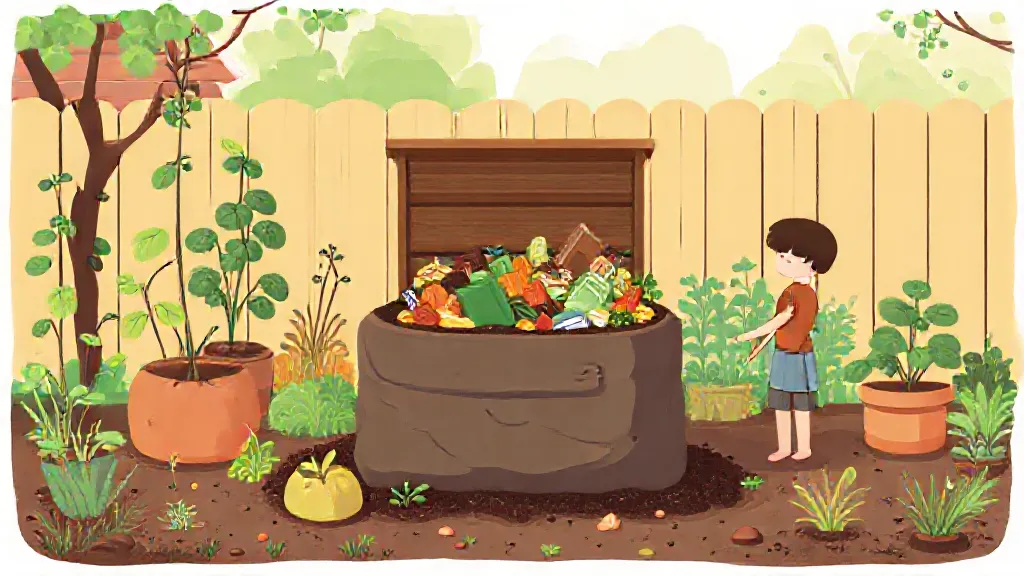Composting is an effective waste management strategy that significantly reduces the amount of organic waste generated by households. By transforming kitchen scraps, yard waste, and other biodegradable materials into nutrient-rich compost, households can divert a substantial portion of their waste from landfills. This article explores the various aspects of composting, focusing on where it has the most impact in reducing household waste.
The Role of Organic Waste in Household Waste Generation
Organic waste, which includes food scraps, garden trimmings, and other biodegradable materials, constitutes a significant portion of household waste. According to the Environmental Protection Agency (EPA), organic materials make up approximately 30% of what we throw away. This statistic highlights the potential for composting to reduce overall waste significantly.
By composting these materials instead of sending them to the landfill, households can lower their waste output and contribute to a more sustainable waste management system.
Composting Methods and Their Effectiveness
There are several methods of composting, including backyard composting, vermicomposting, and community composting. Each method has its advantages and can be effective in different contexts.
Backyard composting allows individuals to manage their waste directly, while vermicomposting utilizes worms to break down organic materials efficiently. Community composting initiatives can serve larger populations, making it easier for residents to participate. The effectiveness of each method in reducing household waste depends largely on local conditions, available resources, and community engagement.
Composting in Urban vs. Rural Settings
The impact of composting on waste reduction can vary significantly between urban and rural settings. In urban areas, space constraints may limit the ability to compost at home, leading to a greater reliance on community composting programs.
Urban composting initiatives often target high-density populations, helping to divert large volumes of organic waste from landfills. Conversely, rural households may have more space for backyard composting, allowing them to manage their waste more independently and effectively.
Educational Outreach and Community Engagement
Education plays a crucial role in the success of composting programs.
Communities that invest in outreach and education efforts tend to see higher participation rates in composting initiatives. Workshops, informational pamphlets, and community events can help demystify the composting process and encourage residents to adopt composting practices. By fostering a culture of sustainability and waste reduction, communities can significantly enhance the effectiveness of their composting efforts.
The Environmental Benefits of Composting
Beyond reducing household waste, composting offers numerous environmental benefits. Compost enriches soil, improves water retention, and reduces the need for chemical fertilizers. Additionally, composting helps mitigate greenhouse gas emissions by reducing the amount of organic waste that decomposes anaerobically in landfills, where it produces methane, a potent greenhouse gas.
By composting, households not only reduce their waste but also contribute to healthier ecosystems and a more sustainable environment.
Challenges and Barriers to Composting
Despite its benefits, composting faces several challenges that can hinder its effectiveness in reducing household waste. These challenges include lack of space, insufficient knowledge about composting techniques, and local regulations that may restrict composting practices.
Addressing these barriers through policy changes, community support, and accessible resources is essential for maximizing the impact of composting on waste reduction.
Measuring the Impact of Composting on Waste Reduction
To understand the true impact of composting on household waste reduction, it is essential to measure and analyze composting rates and the volume of waste diverted from landfills. Local governments and organizations can implement tracking systems to assess the effectiveness of composting programs and identify areas for improvement.
By quantifying the benefits of composting, communities can make informed decisions about resource allocation and program development.
Future Trends in Composting and Waste Management
As awareness of environmental issues grows, composting is likely to become an increasingly important component of waste management strategies. Innovations in composting technology, such as in-vessel composting and anaerobic digestion, may enhance the efficiency of composting processes and expand its applicability.
Additionally, policies promoting composting at the municipal level can help create a more sustainable future, where composting plays a central role in reducing household waste and fostering environmental stewardship.
